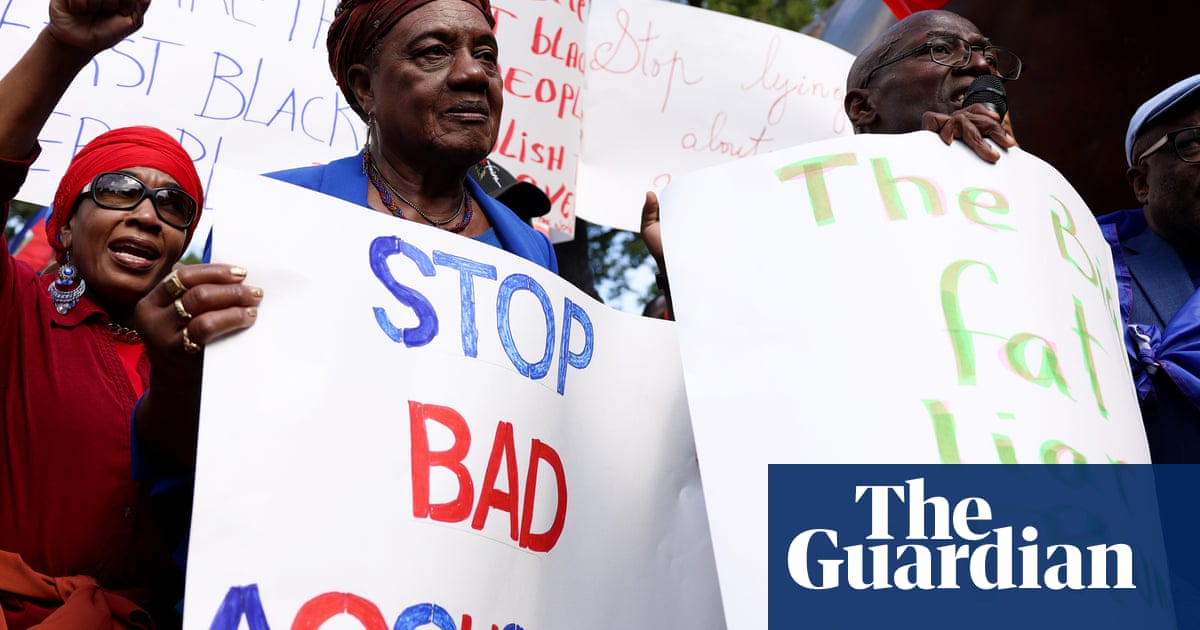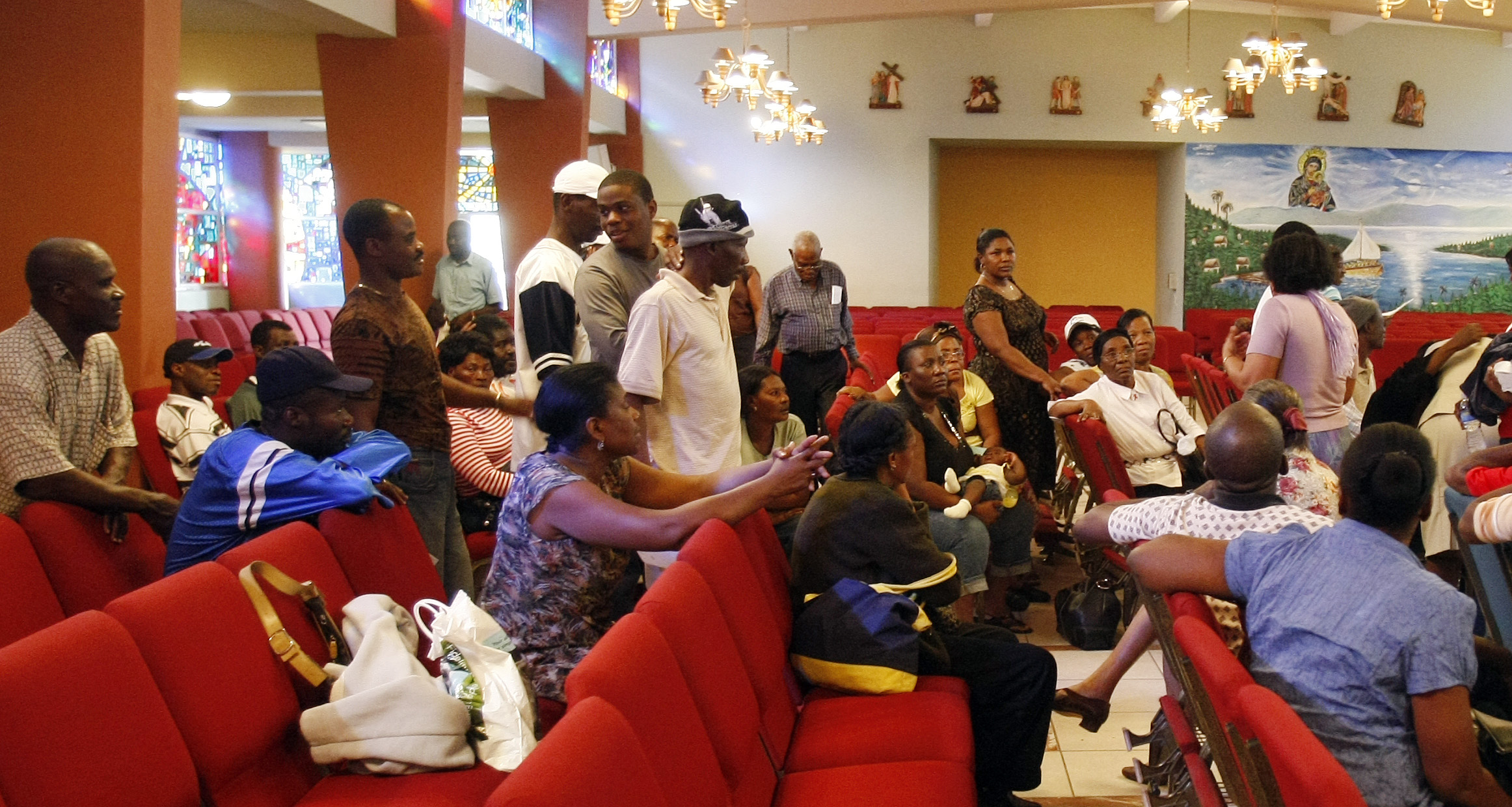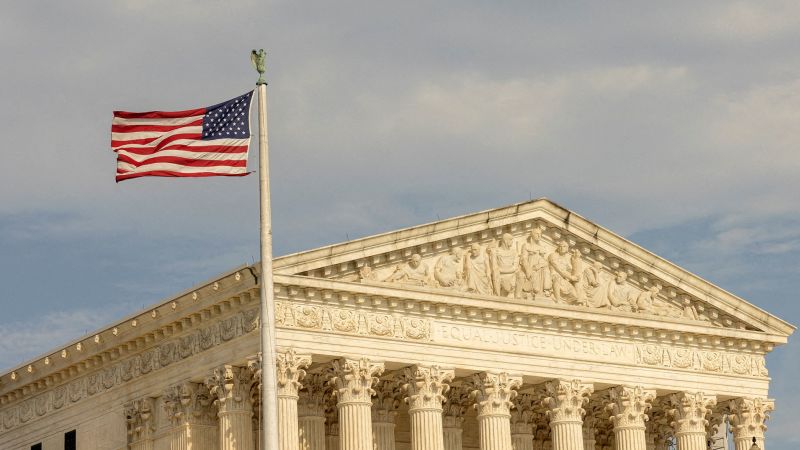
Slingshot News: ‘A Lack Of Cooperation’: Secretary Kristi Noem Blames Local American Police For Her Department’s Own Failures In House Hearing



Children of H-1B visa holders may now age out of their protected legal status while their parents apply for green cards, under a Trump administration policy change announced Friday.
The Department of Homeland Security (DHS) announced that it was reversing a Biden administration policy that prevented young adults from losing their legal status if a parent’s application was still pending when their children reached age 21.
Why It Matters
Around 200,000 children and young adults could be affected by the change, which comes amid a flurry of alterations at the U.S. Citizenship and Immigration Service (USCIS) to bring policies in line with President Donald Trump’s directives to tighten immigration controls.
What To Know
The USCIS policy change affects those who fall under the Child Status Protection Act (CSPA), which the administration of former President Joe Biden had allowed in February 2023 to apply to some children as soon as their parents became eligible to apply for a green card.
That meant that even if they “aged out” during the wait for a green card, they would not lose legal status.
On Friday, the Trump administration rolled those extensions back, saying that CSPA protections would once again only apply when a visa becomes available via the Department of State. USCIS said this would create a more consistent approach for those applying for adjustment of status and immigrant visas.
With long wait times for adjustment of status applications, particularly for H-1B and other temporary visa holders, this could now mean that when a dependent child turns 21, they lose their legal status and may have to leave the U.S., even if they have lived in the country for most or all of their lives.
Doug Rand, a DHS official during the Biden administration, said that many of those children would be American to their core, but would now be forced to the back of the line for a green card.
What People Are Saying
USCIS, in a news release: “The Feb. 14, 2023, policy resulted in inconsistent treatment of aliens who applied for adjustment of status in the United States versus aliens outside the United States who applied for an immigrant visa with the Department of State.”
Doug Rand, former DHS official, in a statement shared with Newsweek: “Back in 2023, the team I was part of at USCIS made a sensible policy change to make this situation a little less awful for a few more young people. Basically, the government has a choice about whether certain people who “age out” of their immigration status can still hang on to their parents’ place in line for a green card some day.
“We chose yes. Today, the Trump administration is choosing no.”
What’s Next
The new guidance will apply to requests filed after August 15, with those already in process not affected.
The Trump administration may not terminate its agencies’ collective bargaining agreements (CBAs), in large part because allowing it to do so would be similar to the “judicial overreach” that the Supreme Court sought to mitigate in a recent ruling in favor of President Donald Trump, a federal judge ruled on Wednesday.
The White House’s attempt to toss out labor unions from key federal agencies, as U.S. District Judge Alan Albright of the Western District of Texas put it, boils down to the authority that the different branches of government possess.
And on this matter, because the Trump administration’s lawsuit was preemptive – that is, asking the court to approve of their future conduct in breaking the CBAs as part of an executive order – the judge found that his hands were tied.
To explain why he came to that decision, the judge pointed to the highest court in the land and its recent case in Trump v. CASA that severely limited the power of U.S. district judges to issue nationwide injunctions.
“This Court’s decision to dismiss this case for lack of jurisdiction is bolstered by the Supreme Court’s recent decision in Trump v. CASA, wherein the Supreme Court held that universal injunctions likely exceed the equitable authority that Congress has granted to federal courts,” Albright, a Trump appointee from the president’s first term, wrote in a 27-page filing.
In making its decision in the landmark birthright citizenship case, the Supreme Court found that universal injunctions were not present for most of the country’s history. And in this case, the district judge opined, the White House asked a court to go a step further – by asking for relief to do something before having even begun.
Albright wrote, at length:
Here, pre-enforcement declaratory judgments pre-approving an Executive Order have been conspicuously nonexistent for all of this Nation’s history. CASA was not decided upon the issue of standing before us today. Nonetheless, the practical impact of the holding in CASA as well as the core legal principle espoused by the Supreme Court remains central to this Court’s decision today— “federal courts do not exercise general oversight of the Executive Branch; they resolve cases and controversies consistent with the authority Congress has given them.” Absent a justiciable case or controversy, this Court will not exercise general oversight of the Executive Branch. Accordingly, this case is dismissed for lack of subject matter jurisdiction.
Trump’s March 27 Executive Order 14251 – titled Exclusions from Federal Labor-Management Relations Programs – declared to “enhance the national security of the United States” by having agencies “have as a primary function intelligence, counterintelligence, investigative, or national security work.”
On the same day, the Office of Personnel Management issued a memo to the relevant agencies – which include the Department of Defense and Department of State – that they are “no longer required to collectively bargain with Federal unions.”
It is also on this fateful March day that the administration filed its lawsuit against the American Federation of Government Employees (AFGE), the largest labor union representing federal workers, seeking pre-approval for the termination of the CBAs. The timing of that action is where the district judge takes issue, finding that no “controversy” requiring him to act existed at the time of the lawsuit because the executive order had not yet been publicly announced.
“It is difficult to imagine how the parties could have formed a concrete dispute over the Executive Order when that document had not yet been released to the public,” Albright wrote. And because a “controversy” could not be found, the White House did not have the legal authority to bring the case, and the court did not have the jurisdiction to hear it.
The Texas-based judge was not unsympathetic to the Trump administration’s position, however. Pointing to nearly 25 nationwide injunctions being filed in the first 100 days of the administration, Albright wrote: “The Court is sympathetic to the administration’s desire for legal certainty with respect to its ability to enforce its Executive Orders when faced with the unavoidable reality that a district court somewhere will likely issue a universal injunction.”
But, again pointing to the Supreme Court, he wrote that “it is appropriate to presume” district courts will follow the high court’s ruling in Trump v. CASA and “curtail the availability” of nationwide injunctions – thus helping ease their concerns.
Albright focused on the issue of precedent while underscoring how much the judiciary can step in on the executive branch’s behalf.
“Allowing the government to seek a declaratory judgment every time (as in this case) the Executive signs a new Executive Order appears to this Court to simply be an escalation in the battle to gain some advantage by being able to select the venue in which the litigation is filed,” he wrote. “The perception, whether correct or not, that one party or the other can gain advantage by selecting a favorable forum threatens the legitimacy of the federal courts.”
He then concluded by once again referencing the Supreme Court’s recent ruling.
“[T]he relief Plaintiffs now seek is roughly the flip-side of the same coin as the relief sought by litigants seeking nationwide injunctions against this Administration,” Albright wrote. “One litigant rushes off to select a forum it perceives to be favorable to enjoin an Executive Order; and the Administration now rushes to preempt that injunction with a declaratory judgment in its own forum of choice.”
“While the Court understands the reasoning behind the Administration’s response to what it perceives as improper judicial overreach, the solution to perceived judicial overreach is not more judicial overreach, but a return to the principles of judicial restraint and strict adherence to the constitutional limits imposed upon the federal judiciary,” he concluded.

Advocates say sending 500,000 Haitians back to a nation overrun by gang violence and displacement is a death sentence.
The Department of Homeland Security said Friday that it is terminating legal protections for hundreds of thousands of Haitians, setting them up for potential deportation.
DHS said that conditions in Haiti have improved and Haitians no longer meet the conditions for the temporary legal protections.
The Department of State, nonetheless, has not changed its travel advisory and still recommends Americans “do not travel to Haiti due to kidnapping, crime, civil unrest, and limited health care.”
Among the group is a small number of charity volunteers working to avoid a potential humanitarian disaster: that thousands of US-born Haitian children could become stateless, or separated from their families.
“In the last several months we realized that the closer we got to the deportations and revocation of statuses meant that all these people who have babies … if they don’t have passports for their children, how are they going to take them out of the country with them?” says Casey Rollins, a volunteer at the local St Vincent de Paul chapter.
“All you have to look at is the previous [Trump] administration.” A Reuters report from 2023 found that nearly 1,000 children separated from their parents at the US-Mexico border in 2017 and 2018 had never been reunited.
Springfield is home to about 1,217 and counting American-born Haitian children under the age of four, with several thousand more dependants under the age of 18. While the number of adults in the Ohio town of 60,000 people legally in the country on TPS is not known, local leaders estimate 10,000 to 15,000 Haitian nationals have come to Springfield, drawn by employment opportunities, since 2017. In April, data provided by the Springfield city school district to the Springfield News-Sun found that the district had 1,258 students enrolled as English language learners in K-12 schools, though that doesn’t mean all are children of Haitian descent.
For three months, Rollins, volunteers at Springfield Neighbors United and others have been working with dozens of Haitians who turn up at charity organizations seeking advice and help every day. One of the most requested issues from parents, Rollins says, is figuring out how to apply for birth certificates for their children, before it’s too late.
“If we can’t stop the deportations, we want to help get them a passport. That way, if they are deported or go to Canada or another welcoming nation, they’d be able to take the child,” she says.
“If it takes three or four months [to complete the bureaucratic process from securing a birth certificate to acquiring a passport], we have got to get moving on this.”

https://www.theguardian.com/us-news/2025/jul/04/passports-haitian-kids-tps-trump-administration
The Department of Homeland Security said Friday that it is terminating legal protections for hundreds of thousands of Haitians, setting them up for potential deportation.
DHS said that conditions in Haiti have improved and Haitians no longer meet the conditions for the temporary legal protections.
The termination of temporary protected status, or TPS, applies to about 500,000 Haitians who are already in the United States, some of whom have lived here for more than a decade. It is coming three months after the Trump administration revoked legal protections for thousands of Haitians who arrived legally in the country under a humanitarian parole program, and it is part of part of a series of measures implemented to curb immigration.
https://apnews.com/article/tps-trump-immigration-haiti-temporary-ce021d96aeb81af607fcd5c7f9784c3b
That’s just one big lie (seem to get a lot of them out of the Trump administration). Here is the Dept. of State’s current travel advisory for Haiti:
Updated to reflect additional information on crime.
Do not travel to Haiti due to kidnapping, crime, civil unrest, and limited health care.
Country Summary: Since March 2024, Haiti has been under a State of Emergency. Crimes involving firearms are common in Haiti. They include robbery, carjackings, sexual assault, and kidnappings for ransom. Kidnapping is widespread, and U.S. citizens have been victims and have been hurt or killed. Kidnappers may plan carefully or target victims at random, unplanned times. Kidnappers will even target and attack convoys. Kidnapping cases often involve ransom requests. Victims’ families have paid thousands of dollars to rescue their family members.
Protests, demonstrations, and roadblocks are common and unpredictable. They often damage or destroy infrastructure and can become violent. Mob killings and assaults by the public have increased, including targeting those suspected of committing crimes.
The airport in Port-au-Prince can be a focal point for armed activity. Armed robberies are common. Carjackers attack private vehicles stuck in traffic. They often target lone drivers, especially women. As a result, the U.S. embassy requires its staff to use official transportation to and from the airport.
Do not cross the border by land between Haiti and the Dominican Republic due to the threat of kidnapping and violence. These dangers are present on roads from major Haitian cities to the border. The U.S. embassy cannot help you enter the Dominican Republic by air, land, or sea. U.S. citizens who cross into the Dominican Republic at an unofficial crossing may face high immigration fines if they try to leave. The U.S. Coast Guard has concerns about security in the ports of Haiti. Until those are addressed, the Coast Guard advises mariners and passengers traveling through the ports of Haiti to exercise caution.
The U.S. government is very limited in its ability to help U.S. citizens in Haiti. Local police and other first responders often lack the resources to respond to emergencies or serious crime. Shortages of gasoline, electricity, medicine, and medical supplies are common throughout the country. Public and private medical clinics and hospitals often lack trained staff and basic resources. In addition, they require prepayment for services in cash.
U.S. government personnel are subjected to a nightly curfew and are prohibited from walking in Port-au-Prince. Personnel movement is restricted throughout Haiti. U.S. government personnel in Haiti are also prohibited from:
- Using any kind of public transportation or taxis.
- Visiting banks and using ATMs.
- Driving at night.
- Traveling anywhere after dark.
- Traveling without prior approval and special security measures in place.
Read the country information page for additional information on travel to Haiti.
If you decide to travel to Haiti:
- Avoid demonstrations and crowds. Do not attempt to drive through roadblocks.
- Arrange airport transfers and hotels in advance, or have your host meet you upon arrival.
- Do not give personal information to unauthorized people to include those without uniforms or credentials. Individuals with bad intent may frequent areas at the airport, including near immigration and customs.
- If you are being followed as you leave the airport, drive to the nearest police station immediately.
- Travel by vehicle to reduce walking in public.
- Travel in groups or at least do not travel alone.
- Always keep vehicle doors locked and windows closed when driving.
- Be cautious and alert. This is especially important when driving through markets and other crowded areas.
- Do not fight back during a robbery. It increases the risk of violence and injury to you.
- Purchase travel insurance with medical evacuation coverage ahead of time.
- Review information on Travel to High-Risk Areas.
- Enroll in the Smart Traveler Enrollment Program (STEP) to receive Alerts and make it easier to locate you in an emergency.
- Follow the Department of State on Facebook and X/Twitter.
- Review the Country Security Report on Haiti.
Prepare a contingency plan for emergency situations. Review the Traveler’s Checklist.
The Trump administration has announced the termination of Temporary Protected Status (TPS) for Haiti, impacting over 520,000 Haitian nationals residing in the United States.
Homeland Security Secretary Kristi Noem stated that the designation will expire on August 3, 2025, with the termination taking effect on September 2, 2025. This decision reverses an 18-month extension granted under former President Joe Biden‘s administration, which would have extended protections until February 2026.

https://www.newsweek.com/trump-admin-haiti-dhs-legal-status-tps-noem-2091814
The Trump administration returned to the Supreme Court on Monday to ask the justices to reverse a lower court order that has blocked mass firings and major reorganizations at federal agencies, a case that could have enormous implications for the president’s power to reshape the federal government.
The latest emergency appeal involving President Donald Trump’s second term to reach the Supreme Court followed an order last week from the 9th US Circuit Court of Appeals that kept on hold Trump’s plans for the sweeping layoffs – known as reductions in force, or RIFs.

A Constitutional Clash In Three Acts
In three closely watched anti-immigration cases, the Trump administration continued its slo-mo constitutional defiance of the judicial branch …
Act I: Non-Responsiveness
Act II: Delay Shenanigans
Act III: Misdirection And Mischaracterization